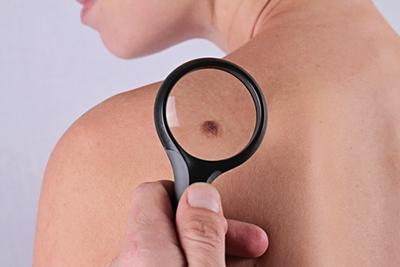The ABCs of Skin Cancer: Early Detection and Prevention
posted: Apr. 02, 2024.

According to the American Academy of Dermatology Association, about 20 percent of Americans are at risk of developing skin cancer. If you are at an elevated risk of developing skin cancers, whether it is due to family history, frequently using tanning machines, or where you live in the world (sunny areas close to the equator), know the ABCs of skin cancer and how to have it treated by a doctor at Atlanta Center for Dermatologic Diseases in Sandy Springs, Roswell, Alpharetta & Cumming, GA.
Skin Cancer Types
Skin cancer is an abnormality of the cells on or below the surface of the skin. It often first appears to be a growth, mole, or blemish that looks different from the rest of the skin. Three of the most common forms of skin cancer that dermatologists diagnose and treat are:
- Basal cell carcinoma (the most common type that looks like a fleshy or pink bump and can usually be treated relatively quickly).
- Squamous cell carcinoma (the second most common form, which looks more like a patchy sore).
- Melanoma (the most serious and concerning type of skin cancer to treat, which often starts within a dark-colored mole).
Early Detection of Skin Cancer
Your Sandy Springs, Roswell, Alpharetta & Cumming, GA, dermatologist will use a visual exam and biopsy to diagnose skin cancer. You can also use a technique called ABCDE to evaluate moles and marks on the body at home:
- Asymmetry of a mark (different on either side).
- The border of the skin imperfection is irregular.
- The color of the blemish varies (blue, black, red, white, or multi-colored).
- The diameter of the mark is larger than a pencil eraser and seems to be growing in size.
- Evolving scars, moles, or marks, which means that they are constantly changing in appearance.
Skin Cancer Prevention Tips
Though some patients may be more likely to develop skin cancer during their lifetimes due to heredity, there are preventative actions that can help:
- Always wear clothing that covers the whole body even in hot temperatures. Light, airy clothing like linen or cotton can still keep you cool.
- Invest in large-brimmed hats and large UV-resistant sunglasses.
- Ask your dermatologist about the minimum SPF sunscreen you should apply to your skin before going outdoors and use a skin moisturizer that contains sunscreen.
Ask Your Dermatologist to Check Your Skin
If you have concerns about a mole or growth on your skin after doing a self-check at home, don’t hesitate to schedule a checkup with a dermatologist. Set an appointment for a skin cancer exam at Atlanta Center for Dermatologic Diseases in Sandy Springs, Roswell, Alpharetta & Cumming, GA, by calling today.
- Sandy Springs Office - (404) 252-4333
- Rosewell Office - (770) 751-1133
- Alpharetta Office - (770) 664-5225
- Cumming Office - (770) 844-1902
